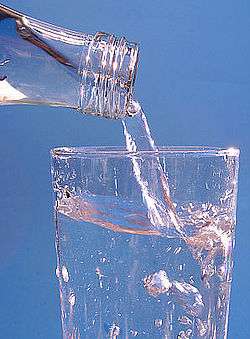Definify.com
Webster 1913 Edition
Were
Were
,Verb.
T.
[AS.
werian
.] To guard; to protect.
[Obs.]
Chaucer.
Webster 1828 Edition
Were
WERE
, pron. er, which when prolonged, becomes ware. This is used as the imperfect tense plural of be; we were, you were, they were; and in some other tenses. It is the Danish verb vaerer, to be, to exist, and in origin has no connection with be, nor with was. It is united with be, to supply its want of tenses, as went is with go.WERE
,Noun.
Definition 2026
were
were
English
Pronunciation
stressed
- (UK) enPR: wûr, IPA(key): /wɜː(ɹ)/
- (US) enPR: wûr, IPA(key): /wɝ/
- Rhymes: -ɜː(ɹ)
- Homophone: whirr (in accents with the wine-whine merger)
unstressed
Verb
were
- Second-person singular simple past tense indicative of be.
- John, you were the only person to see him.
- First-person plural simple past tense indicative of be.
- We were about to leave.
- Second-person plural simple past tense indicative of be.
- Mary and John, you were right.
- Third-person plural simple past tense indicative of be.
- They were a fine group.
- They were to be the best of friends from that day on.
- Simple imperfect subjunctive in all persons of be.
- I wish that it were Sunday.
- I wish that I were with you.
- (Northern England) was.
Synonyms
- (second-person singular past indicative, archaic) wast (used with "thou")
- (second-person singular imperfect subjunctive, archaic) wert (used with "thou")
See also
Etymology 2
Old English wer, from Proto-Germanic *weraz, from Proto-Indo-European *wiHrós (“man”). Cognate to Latin vir (“man”).
Noun
were (plural weres)
- (archaic) man (human male), as in werewolf (“man-wolf”).
- (obsolete) A fine for slaying a man; weregild.
- Bosworth
- Every man was valued at a certain sum, which was called his were.
- Bosworth
- (fandom slang) The collective name for any kind of person that changes into another form under certain conditions, including the werewolf.
Related terms
Statistics
Anagrams
Dutch
Pronunciation
- Rhymes: -eːrə
Verb
were
- (archaic) singular present subjunctive of weren
Anagrams
Irarutu

were
Etymology
From Proto-Central Malayo-Polynesian *waiʀ, from Proto-Central-Eastern Malayo-Polynesian *waiʀ, from Proto-Malayo-Polynesian *wahiʀ.
Noun
were
- water (clear liquid H₂O)
Maku'a
Noun
were
References
- Aone van Engelenhoven, The position of Makuva among the Austronesian languages of Southwest Maluku and East Timor, in Austronesian historical linguistics and culture history: a festschrift, Pacific linguistics 601 (2009)
Onin
Etymology
From Proto-Central Malayo-Polynesian *waiʀ, from Proto-Central-Eastern Malayo-Polynesian *waiʀ, from Proto-Malayo-Polynesian *wahiʀ.
Noun
were
- water (clear liquid H₂O)
Toro
Noun
were
Reference
- Roger Blench, The Toro language of Central Nigeria and its affinities (2012)
Uruangnirin
Etymology
From Proto-Central Malayo-Polynesian *waiʀ, from Proto-Central-Eastern Malayo-Polynesian *waiʀ, from Proto-Malayo-Polynesian *wahiʀ.
Noun
were
- water (clear liquid H₂O)